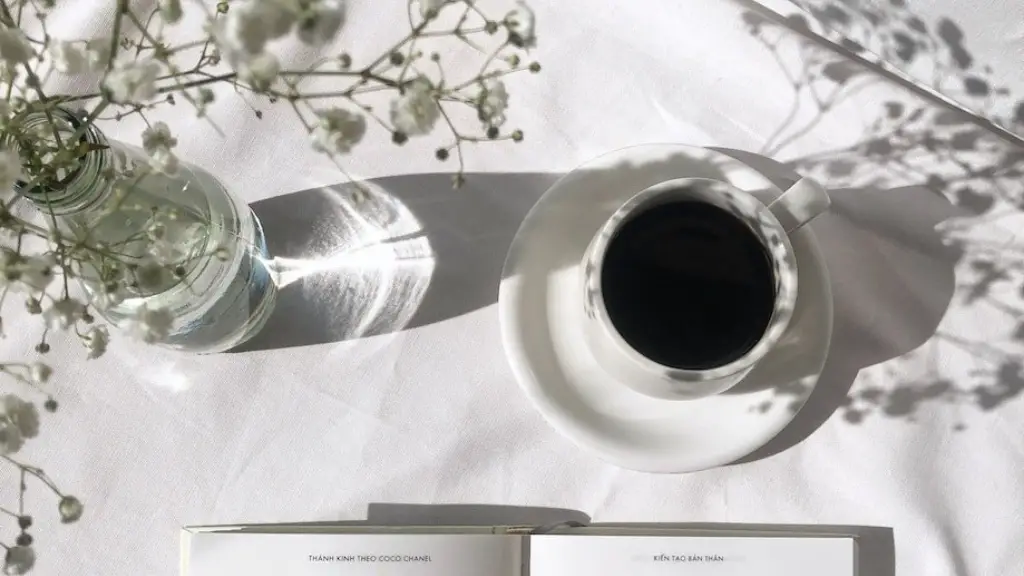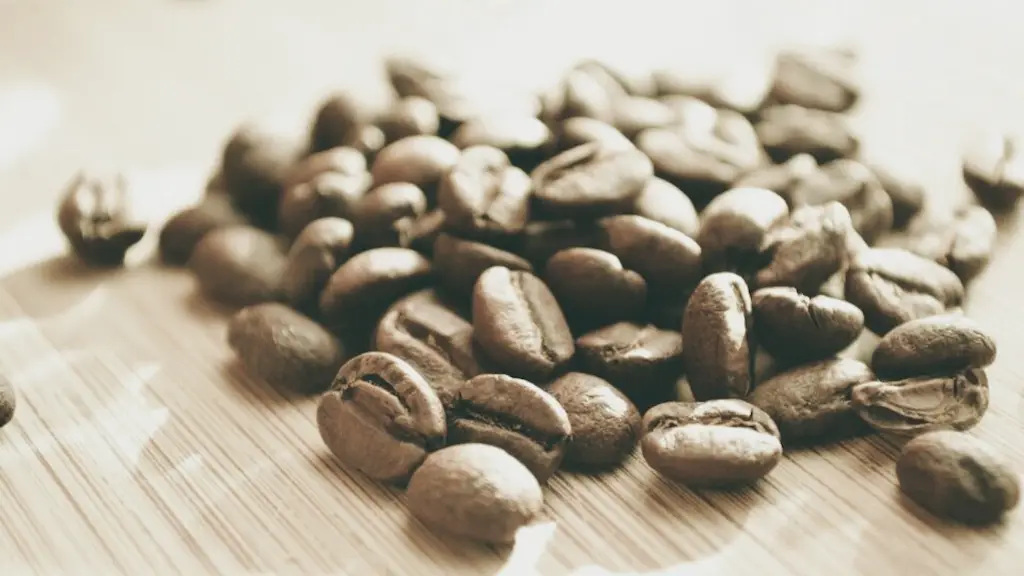Coffee is one of the most popular beverages in the world, but can you drink coffee with an ulcer? An ulcer is an open sore on the lining of the stomach or duodenum that causes pain and discomfort. It can be caused by a variety of factors, including certain medications and infection. However, drinking coffee can cause further irritation to the lining of the stomach and make an ulcer worse.
In general, it is not recommended to drink coffee when you have an ulcer as it can worsen symptoms such as pain, nausea, and vomiting. Some studies suggest that caffeine-containing beverages can increase stomach acid production and lead to further irritation of the ulcers. Additionally, coffee contains tannins which can aggravate existing ulcers. For these reasons, it is best to avoid drinking coffee if you have an ulcer.
If you have an ulcer, it’s important to speak with your doctor about what diet changes may be necessary for optimal healing. In general, a diet rich in fruits and vegetables and low in fat may help reduce symptoms related to your ulcer. Your doctor may also recommend avoiding certain foods or drinks including coffee while healing from your ulcer.
Is Coffee Bad for Ulcers?
Coffee has been linked to a variety of health benefits, including improved mood and alertness. However, for those suffering from ulcers, the effects of coffee are far from beneficial. While drinking coffee may not be completely off limits for those with ulcers, it is important to understand the potential risks associated with it. Coffee can aggravate existing ulcers and increase the risk of developing new ones due to its high acidity. This is because the acidity in coffee can irritate the lining of the stomach and esophagus, which can worsen existing ulcer symptoms such as pain and burning. It can also increase stomach acid production and reduce the protective lining of the stomach, making it easier for new ulcers to form.
To help reduce these risks, many people who suffer from ulcers find that drinking decaffeinated coffee or tea provides a safer alternative. Additionally, adding milk or cream to your coffee or tea can help neutralize some of its acidity. Drinking plenty of water throughout the day is also recommended as it helps flush out toxins that could make ulcer symptoms worse. Ultimately, it is important to consult with your doctor before making any changes to your diet or lifestyle if you have an active ulcer.
Risks of Drinking Coffee with an Ulcer
Consuming coffee while living with an ulcer can be a tricky subject. Drinking too much coffee can lead to acid reflux and other stomach-related issues that can potentially cause or worsen an existing ulcer. Caffeine, a common ingredient in many coffees, has been known to irritate the stomach and increase the risk of ulcer formation. Moreover, some people are sensitive to the acidity in coffee and may experience increased discomfort. Therefore, it is important to consider how your body reacts when drinking coffee with an ulcer.
To further complicate matters, some studies suggest that drinking coffee may actually reduce the risk of developing an ulcer. While this may be true, it is not a good idea for those with existing ulcers as it could increase their risk of irritation or worsening symptoms. Therefore, it is important to consult your doctor before making any changes in your daily routine while living with an ulcer.
In general, it is advisable to limit or avoid your consumption of coffee if you have an active or recent ulcer. If you find yourself unable to give up your daily cup of joe entirely, try switching to decaffeinated options or reducing the amount consumed on a daily basis. Your doctor can also provide advice on which types of drinks are safe for you and which should be avoided altogether.
Reducing Risk of Ulcer
An ulcer is a sore in the lining of the stomach or duodenum. It is caused by an infection, such as Helicobacter pylori, or by the use of certain medications, such as nonsteroidal anti-inflammatory drugs (NSAIDs). To reduce the risk of having an ulcer, it is important to avoid taking NSAIDs frequently and to practice good hygiene. Eating smaller meals more often instead of large meals, avoiding smoking and alcohol consumption, and reducing stress can all help to reduce the risk of developing an ulcer.
When it comes to drinking coffee with an ulcer, it is best to consult a physician. Caffeine can stimulate acid production in the stomach and lead to discomfort for those with existing ulcers. If you have an ulcer, your doctor may recommend that you drink decaffeinated coffee or tea instead. It is also important to avoid consuming other acidic beverages such as soda or juice.
Are There Alternatives to Drinking Coffee with an Ulcer?
It is not recommended to drink coffee with an ulcer, as it can cause irritation and worsen the condition. However, there are alternatives to drinking coffee that can still provide its signature flavor. For example, you can try decaffeinated coffee, which has much less caffeine than regular coffee and won’t irritate your ulcer. You can also make your own flavored coffee drinks with decaffeinated coffee grounds. Adding milk and sugar can help mask some of the bitterness without adding too much acidity. Additionally, herbal teas like chamomile and ginger tea are a great alternative to drinking coffee and may even help reduce inflammation in the stomach. Finally, you may want to consider switching to a low-acidic or caffeine-free alternative beverage such as hot cocoa or herbal tea. All of these alternatives should help reduce irritation while still providing some of the flavor that comes from regular coffee.
Can You Drink Coffee with an Ulcer?
Ulcers are painful sores that can form in the lining of the stomach or small intestine. While consuming coffee can irritate existing ulcers, some types of coffee may be less likely to cause further irritation. People with ulcers should consider switching to decaffeinated coffee, as it contains lower levels of caffeine and other compounds that may aggravate ulcers. Additionally, adding cream or milk to coffee may help reduce its acidity and reduce symptoms. People with ulcers should also avoid highly acidic coffees, such as dark roasts, as these could further aggravate symptoms. If you have an ulcer and want to enjoy a cup of coffee, make sure to drink it slowly and in moderation.
Can You Drink Coffee with an Ulcer?
Ulcers are painful sores that form in the lining of the stomach or small intestine. Coffee is known to be a stimulant that can cause irritation and can make ulcers worse. Therefore, it is best to avoid drinking coffee if you have an ulcer. However, if you really need to have a cup of coffee, it is recommended that you use decaffeinated coffee instead and drink it in moderation. It’s also important to remember that even decaffeinated coffee can still contain small amounts of caffeine.
It’s also important to remember that ulcers can be caused by lifestyle factors such as smoking or drinking alcohol. It’s best to avoid these activities while you are trying to heal your ulcer. Additionally, it is important to make sure that you are eating a healthy diet, as certain foods can aggravate your symptoms and make them worse. Eating plenty of fruits, vegetables, whole grains and lean proteins can help reduce your symptoms and aid in healing your ulcer.
In conclusion, if you have an ulcer, it is best to avoid drinking coffee altogether or reduce your intake of caffeinated beverages. Decaffeinated coffee may be taken in moderation but it is still important to keep track of how much caffeine you consume on a daily basis. Additionally, making lifestyle changes such as avoiding smoking and alcohol and eating a healthy diet can help reduce your symptoms and aid in healing your ulcer.
To Sum it All Up
The answer to the question of whether or not you can drink coffee with an ulcer is complicated and depends on the individual’s condition. Generally, it is recommended that those with ulcers should avoid consuming any caffeinated beverages. If you have an ulcer, then it is best to talk to your doctor before drinking coffee or any other caffeinated beverage. It is also important to note that there are other potential health risks associated with consuming too much coffee. Ultimately, the best way to reduce the risk of ulcers is to maintain a healthy diet and lifestyle.




